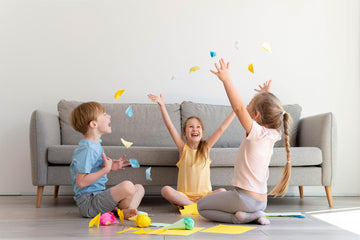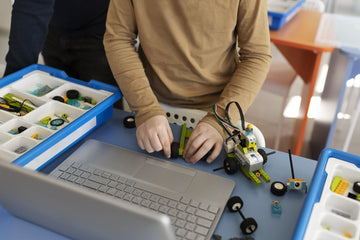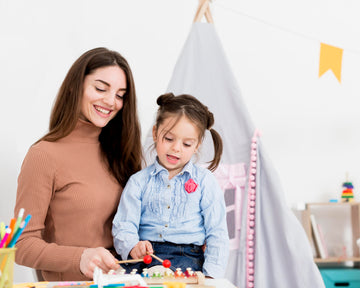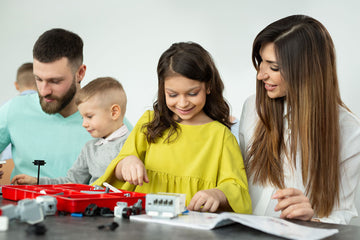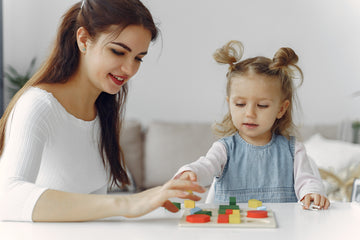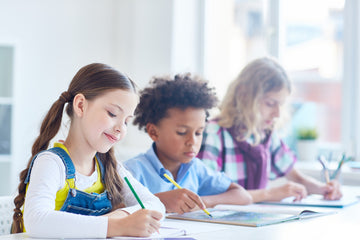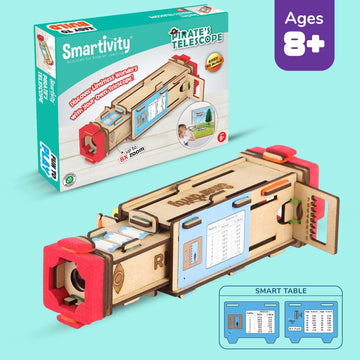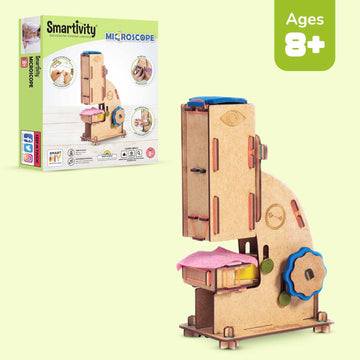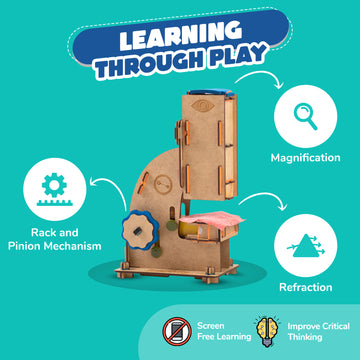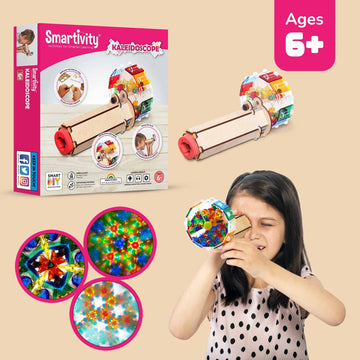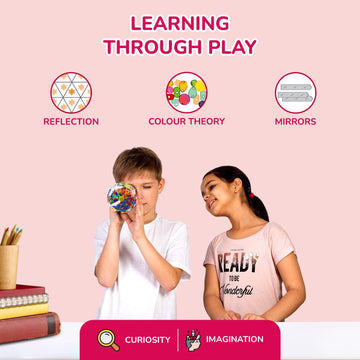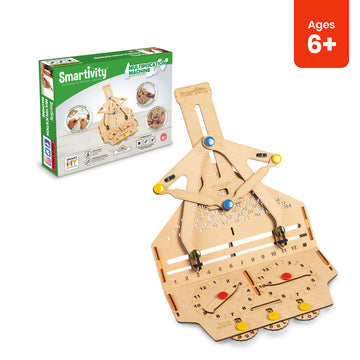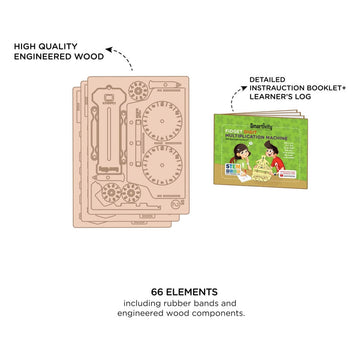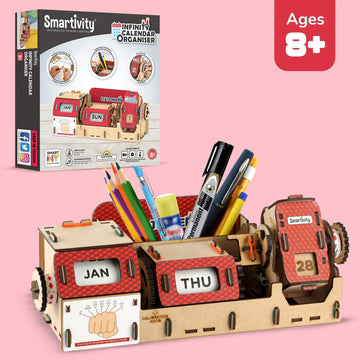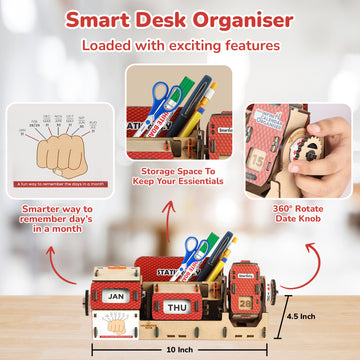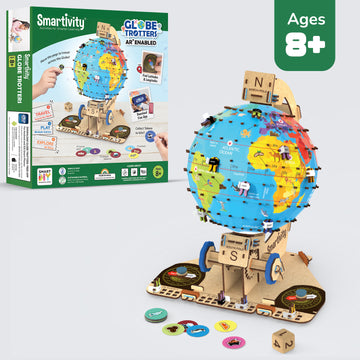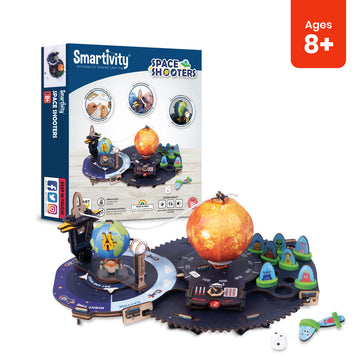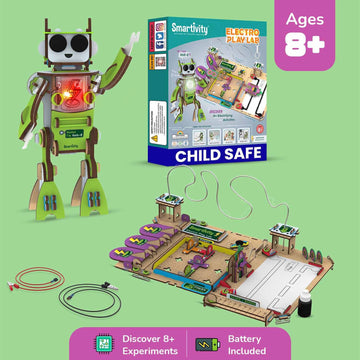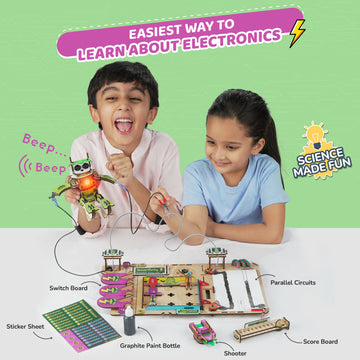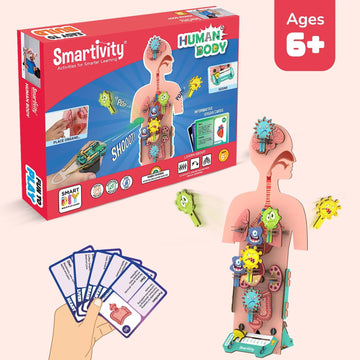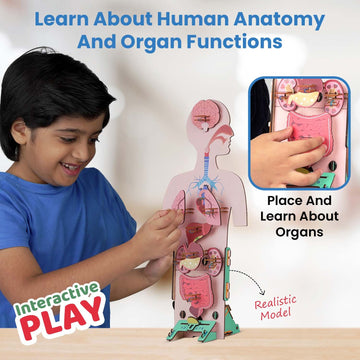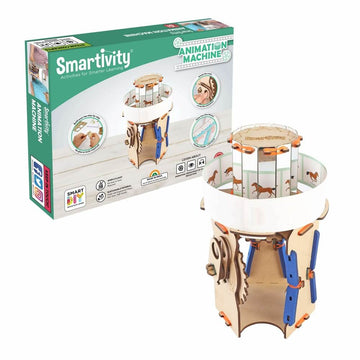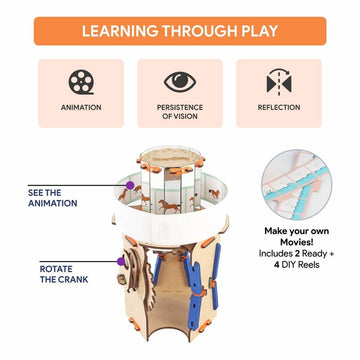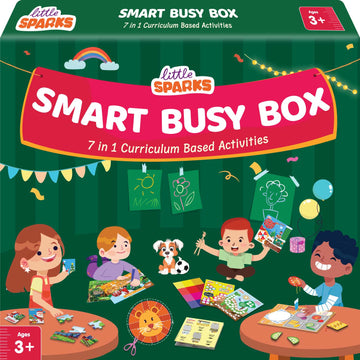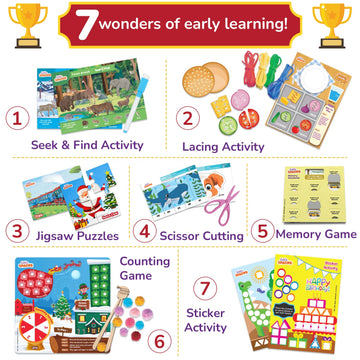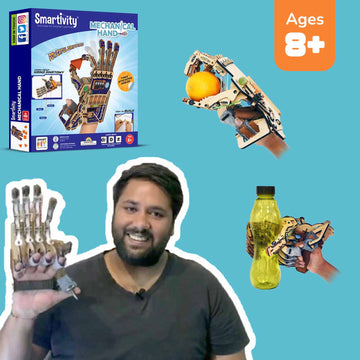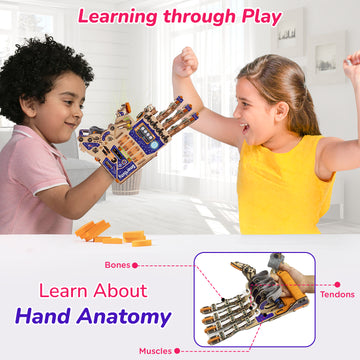How Parental Acceptance Shapes a Child's Personality & Attitude
by Smartivity on Tue, Oct 11, 22

When you were a child, how often did you hear things like, "You're the best little boy in the whole world," or, "I love you," from your parents? Perhaps, you heard that often. These positive affirmations are a surefire way to boost your self-esteem and make you feel loved. Now think about what that world would be like if your parents never told you that they loved you. Imagine how you would feel if they never expressed their love and affection.
This type of parental love and acceptance helps a child develop his sense of self. It helps the child understand how to trust and be trusting of others. Such early parent-child love relationships also help in establishing the individual's basic emotional and social needs as they mature into adulthood.
When you were little, you likely became emotionally attached to your parents and often showed how much you love your parents. You may even have developed a sense of "parental dependency" toward your primary caregiver. It's natural to feel this way towards a parent whom you view as your primary source of love and support. Sensing such love and acceptance from your caregivers, you naturally want to reciprocate the same for them. This type of positive reinforcement is known as "attachment-based love."
What Types of Parenting Styles Shape Your Child's Personality & Attitude?
Authoritative Parenting :

This involves meeting the child's needs for autonomy, control, and attention in a balanced way. It has the following highlights:
-
It involves setting clear rules and expectations, providing consistent consequences for breaking these rules, and responding to the child's feelings and needs in a sensitive manner.
-
While authoritative parenting may be viewed as the ideal model, it is not always easy to achieve. Some parents may find themselves struggling with too much control or not enough freedom in their interactions with their children.
-
Authoritative parenting requires great skill and practice to be successful. It may also require trial and error before finding the right balance between structure and freedom.
Permissive Parenting :

This involves the practice of allowing children to do whatever they want. Here are certain signs of permissive parenting:
-
Are you a parent who allows your child to do whatever they want? Are you a parent who lets your child get away with anything, even if they are causing trouble or being destructive? If your answer is yes, you might consider yourself a "permissive" parent.
-
While permissive parents may believe that parents unconditional love approach will foster independence and responsibility in their children, it can have the opposite effect as well.
- A lack of limits and structure can lead to a lack of self-control and poor impulse control. It can also lead to an increased likelihood of engaging in risky behaviors like drug use or unsafe driving. Therefore, permissive parenting is not necessarily a good idea always.
Uninvolved Parenting :

This type of parenting is characterized by a lack of parents love, support, and involvement from the non-custodial parent in their child's life. Here are a few things to remember:
- This parenting is harmful to children because it deprives them of important parental child love resources.
- Children raised in this environment may grow up feeling abandoned or unloved, which can cause them to develop feelings of insecurity and anxiety.
- Uninvolved parents may also have a negative impact on their child's ability to form healthy attachments with other people.
How can parents influence the child's behavior?
Friendship
- This is one of the most important bonds that parents can create with their children.
- It helps build and strengthen a child's social network and provides opportunities for parents to spend quality time with their child(ren),
- It thus gives parents happiness. Friendship also encourages parents to play an active role in their children's lives by children hugging, being open and honest with them, and encouraging them to make friends of their own.
Respectful Relationships :
- Such relationships are essential for many reasons. First, they keep relationships strong. If both people feel respected by the other, they are more likely to trust each other and respect each other's wishes.
- Second, respectful relationships help build self-esteem in teenagers.
- Third, having a respectful relationship can make it easier for teens to make friends when they start high school.
- Finally, respecting someone can help them learn how to be more compassionate and kinder towards others.
Being Open about Sensitive Topics :
- Many parents worry that talking about alcohol and other drugs will make their children more curious or open to experimenting with drugs. However, research has found that talking about alcohol and other drugs does not increase a person's likelihood of trying them.
- By simply talking openly with your children, you can help them learn how decisions like these can positively affect others.
- One of the most effective ways to encourage good decision-making and healthy attitudes is to talk openly and honestly with your child about a variety of topics. This open communication gives them a chance to learn how their actions can affect others and themselves.
A Healthy Lifestyle :
- Fostering a healthy relationship is an important factor in the development of a child. It can help with the prevention of chronic diseases. For example, eating a healthy diet and being physically active can help to prevent obesity and diabetes. It can also improve mood and cognition, both important factors in learning ability.
- Talking with your child about a healthy lifestyle can influence pre-teen and teenage attitudes and behavior.
Technology
- The use of technology can influence attitudes and behavior of pre-teens in several ways, from influencing how they perceive the world (including how it works) to reinforcing existing beliefs.
- If a pre-teen is already quite creative and has an open mind, technology can be a wonderful way to express their inner geek. But if they're not so inclined to 'use it or lose it', technology can be a source of frustration.
How can parents shape their child's personality & attitude with wooden toys?
A wealth of research suggests that the key to raising well-adjusted children is teaching them how to manage their emotions. Children benefit from different types of play and by engaging them in activities that encourage open communication and problem-solving skills, such as playing games with wooden blocks or building various projects from wooden educational toys, we can positively shape their personality and attitude.
- By encouraging open communication, parents can help their children develop the ability to express their feelings verbally and solve problems calmly and rationally.
- By encouraging problem-solving skills, parents can teach their children how to think through things in a logical manner. These simple, low-tech ways of interacting with your child will help him, or her, grow into a more confident, resilient person.
Wooden educational toys are an ideal way to teach kids about emotions and coping strategies because they are made from natural materials that they can feel and touch. The tactile nature of wooden toys also stimulates the part of the brain responsible for processing touch and encourages young children to interact with their environment and healthily explore their world.
Educational toys can help foster a love of learning by exposing children to different subject matter at an early age. They can also help channel their energy in a positive direction. And they can provide a sense of accomplishment when they succeed at learning new skills. Wooden toys also promote hand-eye coordination and fine motor skills, which are both important for learning. These qualities make wooden toys a great way to encourage your child's development. So don't hesitate to give them a try!
Smartivity is committed to using only eco-friendly, non-toxic paints that are lead-free, water-based, and completely non-toxic. We do not use any hazardous chemicals or colours to conserve natural resources and make our toys more sustainable. For organic wooden toys, we exclusively use naturally anti-macrobiotic and anti-allergic woods, making them a safe and healthy choice for children.
We are the industry's first wooden toys online store to offer exclusively organic wooden toys. If you want to buy eco-friendly toys online without breaking the bank, then Smartivity is the right place to be!
Summary
Smartivity wooden toys are made from natural materials that are safe for your child to play with and designed to stimulate and encourage a positive learning environment. Smartivity wooden toys are ideal for toddlers and preschoolers with natural wood finish and bright colours. The natural properties of Smartivity wooden toys provide a sensory experience that promotes physical, cognitive, and social development in children who play with them. From helping to build fine motor skills to improve hand-eye coordination, the tactile nature of these toys helps develop a child's sense of touch and encourages them to engage with their surroundings. Smartivity wooden toys can be used in many ways by parents and caregivers for kids happiness. From keeping kids entertained at home to encouraging daily activities out in the community, these toys can be used in a variety of ways to help your child develop. So, whether you're looking for a set of Creativity Toys or wooden construction toys, Smartivity has you covered!

